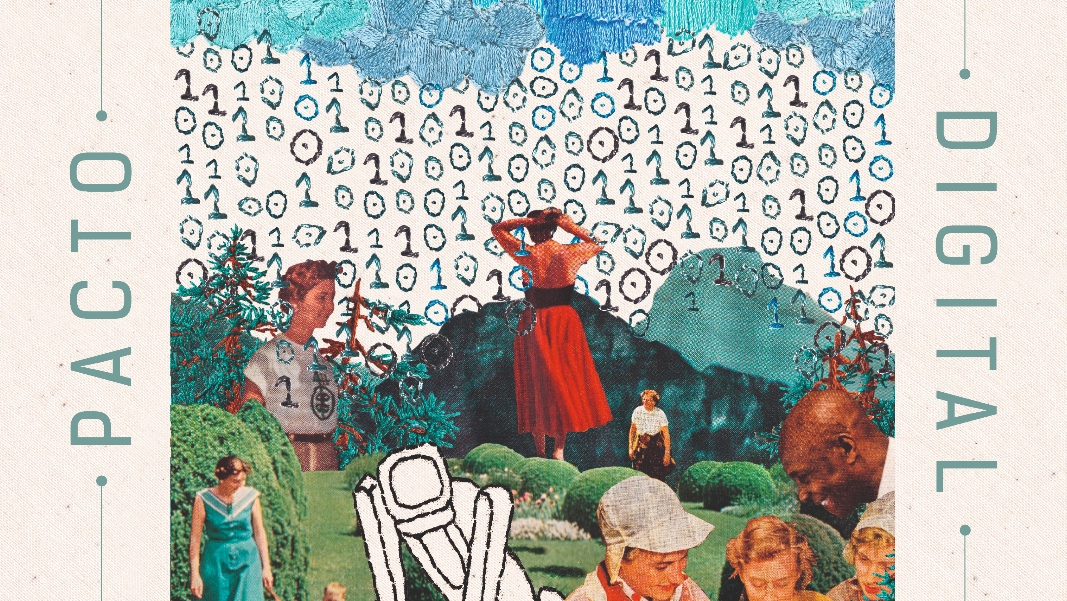22.07.2024
TELOS 125. A new world order for techno-humanity
At a critical juncture of the digital transition, coinciding with the flourishing of artificial intelligence (AI) and emergence of generative AI (GII), it is imperative for there to be a global compact that places humanity at the heart of this new era of technoscientific progress. Moreover, given we are immersed in the age of data and effective governance of the so-called techno-humanity, the coexistence between man and technology—without it harming the former—is indispensable.
Different organisations, led by the United Nations, are calling for a digital compact to rebuild our societies and economies more equitably, to define standards in line with our collective values and write them together. The Future Summit convened by the United Nations in September 2024 is a unique opportunity to restore trust, to demonstrate that international cooperation can make an effective response to the challenges ahead, and that the development of AI, data protection, technological interoperability, cybersecurity, etc., must be defined in order to achieve sustainable governance.
TELOS 125 aims to be a reflection on a new governance model that sets out a roadmap for building a fairer freer and more equitable, sustainable, secure, open, and people-centred digital future.
TELOS 125. A new world order for techno-humanity

This number reflects on the need for a new global digital compact that defines criteria for the development and implementation of technologies in pursuit of social welfare and equity.
Click here to download TELOS 125
 We all must jointly promote an effective governance model for growth, prosperity and the protection of fundamental rights and values. An agreement that requires a comprehensive approach addressing both privacy and cybersecurity. Only by strengthening information protection and reducing the impact of cyber-threats can we safeguard digital sovereignty and promote a secure and trusted digital ecosystem for all. In short, the aim is to ensure that citizens do not feel vulnerable in the face of technology and that their rights are safeguarded.
We all must jointly promote an effective governance model for growth, prosperity and the protection of fundamental rights and values. An agreement that requires a comprehensive approach addressing both privacy and cybersecurity. Only by strengthening information protection and reducing the impact of cyber-threats can we safeguard digital sovereignty and promote a secure and trusted digital ecosystem for all. In short, the aim is to ensure that citizens do not feel vulnerable in the face of technology and that their rights are safeguarded.
TELOS 125 features the participation of various contributors to the Main Journal, including authors such as Clara Ruipérez, Aina Errando, Luis Barreda, Ignacio Pedrosa, Dácil Jiménez and Jorge Pérez Martínez. The guest author on this occasion is the Director of Public Policy at Telefónica, Juan Luis Redondo, who advocates a global pact that brings together the different positions of the stakeholders. Redondo argues that “multilateral governance, conceived in less complicated and slower-paced times, is not suited to today’s complex, interconnected and rapidly changing world”.
The interview is dedicated to the author of the new ideas of robotics to defend the human experience in the age of AI, Frank Pasquale, who calls for a new regulatory framework: “We need a regulatory framework that sometimes is going to stop certain forms of technological development; this doesn’t mean that we are not moving forward; it just means that we are going to take a different direction”. And in the analysis section, the featured authors include Antonio Fumero, Marta Cantero, Jorge Couceiro, Inès Dinant, Óscar Espíritusanto and Fernando Rocha. Finally, in the section on experiences, Arancha Martínez, founder of it-willbe.org and Comgo, discusses giving a new meaning to SDG17, the one that refers to partnerships, to achieve common goals that generate global progress. For her, “technological solutions designed in isolation may seem innovative from a technical perspective, but they may not be useful or accessible to the people they are intended for”.
Through the reflections of these authors, TELOS 125 addresses the need for this new global digital compact that lays out the criteria for the development and implementation of these technologies without affecting innovation and by contributing towards ensuring there is coexistence between the search for well-being and universal equity. To this end, it is crucial for policy-makers, technical experts, humanistic technologists and society in general to transparently approach the analysis of the challenges we face, taking an ethical perspective with a core goal, that of the common good.